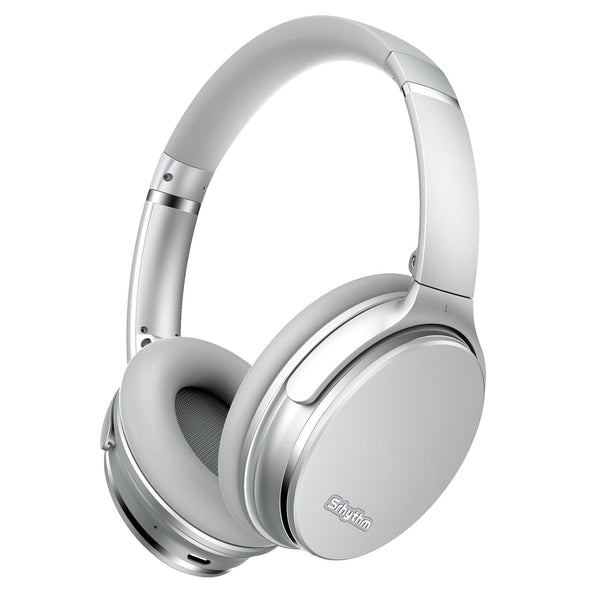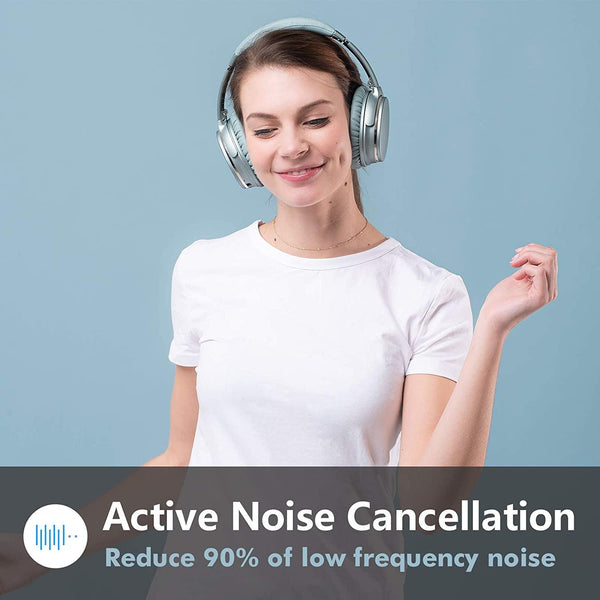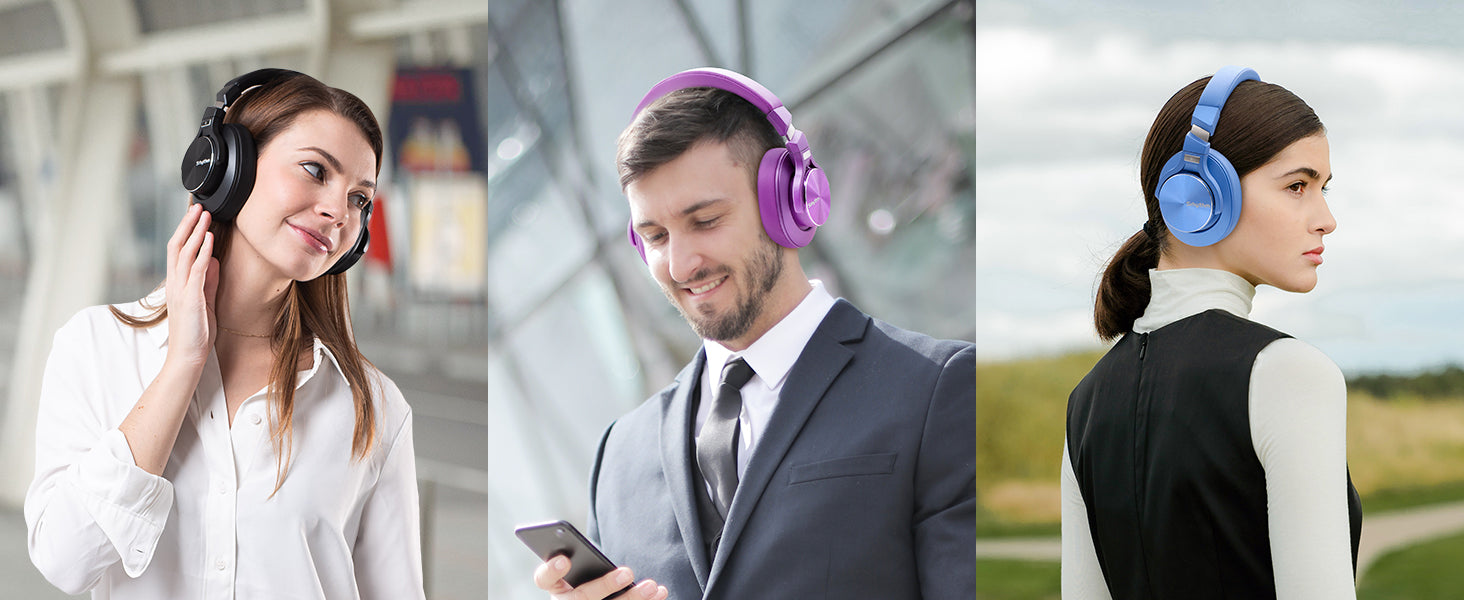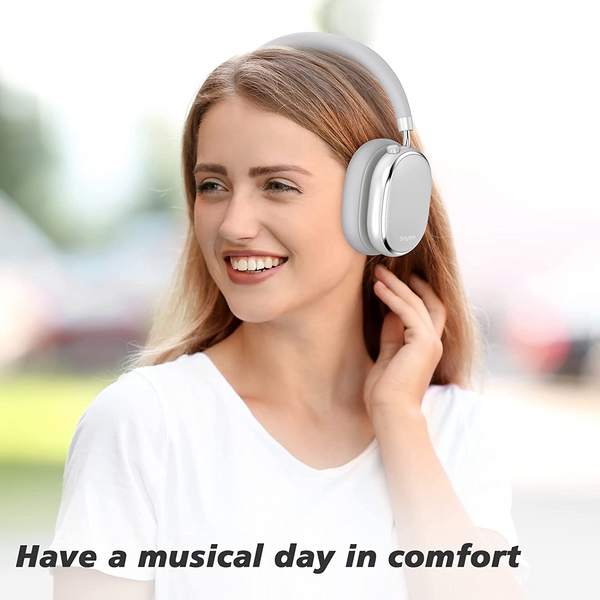Mastering the Art of Superior Sound Experience with ANC Headphones

Nice Comfort NC35 ANC headphones from Srhythm.com NiceComfort NC35
Introduction
From the constant buzz of a jet engine to the relentless chatter in a busy café, we often want to escape the chaotic soundscapes that modern life throws at us. That's where active noise-canceling (ANC) headphones come in. Designed to cancel noise and provide superior sound quality, these advanced pieces of technology allow us to focus on the music we love or the calls we need to make without being disrupted by external noise.
However, to fully enjoy the benefits of your ANC headphones, it's crucial to understand their dos and don'ts.
The Dos of Using ANC Headphones

Do Understand How Noise Cancelling Technology Works
Before you start using your ANC headphones, it's essential to understand how the noise-canceling technology works. These headphones have microphones built into the ear cups that capture external sounds. They then generate a counteracting sound wave that's 180 degrees out of phase with the captured noise. When these sound waves collide, they effectively cancel each other out, hence the term “noise-canceling.” This mechanism is particularly efficient at lower frequencies, such as the rumble of a train or an airplane engine.
Noise cancellation technology works based on a principle called “destructive interference”. In simple terms, this principle states that two identical sound waves that are 180 degrees out of phase (meaning one wave's troughs align with the other wave's peaks) will cancel each other out. Noise-canceling headphones exploit this phenomenon to mitigate unwanted external noise.
Active Noise Cancellation takes noise cancellation a step further by employing sophisticated electronics. This technology works best at reducing low-frequency sounds like the hum of an airplane engine or air conditioning.
- Microphones: ANC headphones are equipped with one or more external microphones that constantly listen to ambient noise.
- Noise-Cancelling Circuitry: The ambient noise captured by the microphones is fed into the headphone's noise-cancelling circuitry. This circuitry generates an "anti-noise" signal, which is essentially a mirror image of the incoming noise but 180 degrees out of phase.
- Speakers: This anti-noise signal is then fed into the headphone speakers along with the normal audio that the headphones are producing. The result is that the anti-noise cancels out the ambient noise, allowing only the desired sound – your music, podcast, or phone call – to reach your ears.
Do Use Them in Noisy Environments
Active noise cancellation works best in environments with consistent background noise. The hum of an airplane or the constant churning of an air conditioner are perfect examples. In such conditions, ANC headphones can effectively eliminate these distractions, allowing you to enjoy your audio without cranking up the volume.
Prolonged exposure to loud noise can lead to hearing damage or loss. Here are some noisy environments that could potentially harm your hearing:
- Music Concerts and Festivals: Music events often expose attendees to extremely high sound levels, often exceeding safe levels.
- Nightclubs and Bars: These venues often play loud music to create an energetic atmosphere, but this can pose risks to hearing health.
- Construction Sites: Power tools, machinery, and heavy equipment generate significant noise that can be harmful to the workers and those nearby.
- Factories and Industrial Settings: Manufacturing machinery and industrial equipment often produce high noise levels.
- Shooting Ranges: Gunfire is incredibly loud and can cause instant, irreversible hearing damage without proper protection.
- Airports: The roar of aircraft engines, particularly during takeoff and landing, can be hazardous to hearing.
- Motor Racing Events: The high-revving engines and screeching tires at car, motorcycle, or boat racing events generate intense noise levels.
- Home Workshops: Power tools such as drills, saws, and sanders can produce noise levels that pose a risk to hearing over prolonged exposure.
- Fitness Classes: Loud music is often played in fitness classes to motivate participants, but these volumes can be harmful over time.
- Urban Traffic: Living or working in a city with heavy traffic can expose you to harmful noise levels from vehicles, horns, sirens, and construction.
It's crucial to protect your hearing in these environments, either by limiting exposure time, maintaining a safe distance from the noise source, or using protective equipment such as earplugs or noise-canceling headphones.
Do Care for Your Headphones
To maintain the sound quality and longevity of your ANC headphones, it's vital to care for them properly. Store them in a protective case when not in use, avoid exposing them to extreme temperatures, and regularly clean the ear cups gently using a soft, dry cloth. This will help to preserve their noise-canceling capabilities and overall audio quality.
Learn how to never misuse your headphones.
Handling and Usage
- Avoid Excessive Volume: While it might be tempting to crank up the volume, doing so can damage the headphone speakers over time. High volumes can also harm your hearing. Maintaining a moderate volume level protects both your headphones and your ears.
- Proper Handling: Always handle your headphones with care. Avoid pulling them off your head or out of the jack by the cord, as this can damage the wires or connectors. Instead, hold the earcup or plug when removing them.
Cleaning
- Routine Wipe-Downs: Wipe your headphones down regularly with a dry or slightly damp cloth. This prevents dirt and oils from building up and damaging the materials.
- Ear Pad Maintenance: Ear pads can be removed on many headphone models for easier cleaning. Use a mild soap and warm water, then allow them to fully dry before reattaching. However, check the manufacturer's instructions first, as some may suggest specific cleaning methods or products.
- Avoid Liquid Exposure: While some headphones are water-resistant, most are not. Keep your headphones dry and avoid cleaning with excessive moisture, as the liquid can damage the internal electronics.
Storage
- Avoid Extreme Temperatures: High heat can damage the headphone's electronics while freezing can make certain materials brittle. Always store your headphones in a temperate, dry place.
- Use a Case: If your headphones come with a case, use it! A case protects your headphones from physical damage and dust when they're not in use. If they didn’t come with one, consider investing in a suitable case.
- Cable Care: For wired headphones, avoid tightly wrapping the cable around the headphones during storage. This can strain and eventually damage the wires. Instead, loosely coil the cable and secure it with a tie.
Longevity and Repairs
- Regular Inspections: Regularly inspect your headphones for any signs of damage or wear and tear. This could include frayed wires, loose connections, or deteriorating padding on the earcups.
- Professional Repairs: If your headphones need more than simple cleaning, consider professional repair. Especially for high-end headphones, professional servicing can be a worthwhile investment to maintain audio quality and prolong their lifespan.
Special Considerations for Wireless and ANC Headphones
- Battery Care: For wireless or ANC headphones, battery care is essential. Avoid completely draining the battery, as it can shorten its lifespan over time. When not in use, switch off the headphones to save battery life.
- Firmware Updates: Keep your headphones up-to-date with the latest firmware. These updates can include bug fixes, improvements, or new features, enhancing the functionality and performance of your headphones.
The Don'ts of Using ANC Headphones

User correctly handling ANC headphones from Srhythm.com NC75PRO
Don't Expect Total Silence
While ANC headphones are excellent at canceling lower-frequency noises, they may not entirely eliminate higher frequencies, such as people talking nearby or the sound of keys typing. Remember, the goal of ANC technology isn't to create total silence but to minimize the impact of external noise on your audio experience.
Don't Misunderstand Noise Isolation with Noise Cancellation
While the terms may sound similar, noise isolation (or passive noise cancellation) and active noise cancellation are different. Noise-isolating headphones work by physically blocking external sounds, similar to how earplugs work. ANC headphones, on the other hand, actively cancel noise using the out-of-phase sound wave technique we discussed earlier.

Here are the key elements that differentiate Noise Isolation from Noise Cancellation:
- Mechanism of Action: Noise Isolation works by physically blocking sound, while Noise Cancellation uses electronics to generate a counter-sound wave to cancel out unwanted noise.
- Frequency Handling: Noise Isolation is more effective at blocking out higher-frequency sounds, such as human voices or traffic noise. In contrast, Noise Cancellation excels at reducing low-frequency sounds, like the hum of an airplane or a fan.
- Complexity: Noise Isolation is simpler and relies solely on the materials and design of the headphones. Noise Cancellation involves more sophisticated technology, including external microphones and special circuitry.
- Power Requirement: Noise Isolation doesn't require any power to work, while Noise Cancellation needs a power source to generate the counter-sound wave.
- Price: Due to its simpler design, Noise Isolation is typically less expensive than Noise Cancellation, which requires more advanced technology.
- Effectiveness: Noise Isolation's effectiveness largely depends on the headphone fit and seal. In contrast, Noise Cancellation's effectiveness depends on the quality of its electronics and algorithms.
Don't Overuse High Volumes
One of the main benefits of ANC headphones is that they allow you to listen to audio at lower volumes by reducing background noise. However, even with noise-canceling headphones, listening to loud sounds for extended periods can still lead to hearing damage. Always use your headphones responsibly.
Conclusion: Enjoy the Full Benefits of Your ANC Headphones
A happy user with ANC headphones from Srhythm.com ANC Headphones
By understanding the dos and don'ts of using your ANC headphones, you can fully enjoy the impressive noise-canceling technology and superior audio quality these devices offer. With proper use and care, your ANC headphones will provide an immersive audio experience, whether you're tuning into a podcast, taking a call, or getting lost in your favorite music.




